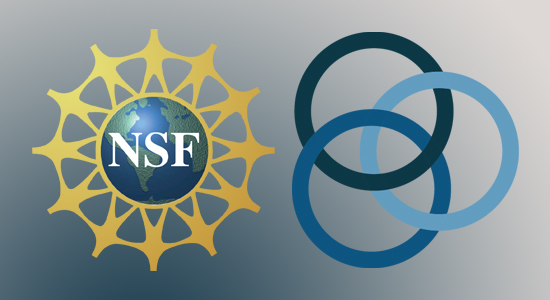NSF CAREER and Track-4 Proposal Solicitation

NSF CAREER Program
- The NSF Faculty Early-Career Development (CAREER) Program is a Foundation-wide activity that offers the NSF’s most prestigious awards in support of early-career faculty who have the potential to serve as academic role models in research and education and to lead advances in the mission of their department or organization. Activities pursued by early-career faculty should build a firm foundation for a lifetime of leadership in integrating education and research. NSF encourages submission of CAREER proposals from early-career faculty at all CAREER-eligible organizations and especially encourages women, members of underrepresented minority groups, and persons with disabilities to apply.
- ⇒ See the CAREER webinar materials and FAQ.
- Eligibility: Proposers must meet all of the following eligibility requirements as of the annual deadline:
- Hold a doctoral degree in a field supported by NSF
- Be engaged in research in an area of science, engineering, or education supported by NSF
- Hold at least a 50% tenure-track (or tenure-track-equivalent) position as an assistant professor (or equivalent title)
- Be untenured; and
- Have not previously received a CAREER award
- A Principal Investigator (PI) may submit only one CAREER proposal per annual competition and may not participate in more than three CAREER competitions
- Submission Deadline: July 26, 2023
- See FAQs for more details about Career Program.
NSF RII Track-4 Program
EPSCoR Research Infrastructure Improvement Track 4: EPSCoR Research Fellows offers the following tracks:
- RII Track-4:NSF and
- RII Track-4:@NASA
While they are similar in achieving the same goals, RII Track-4:NSF is open to a broad community, and RII Track-4:@NASA focuses on PIs from specific institutions of higher education with high enrollments of students from underrepresented populations in STEM (See Section “IV. Eligibility Information” for more details) to collaborate with scientists at NASA’s research centers. PIs who are eligible for both tracks may apply for only one track per competition cycle. The support should contribute to both the PI’s research capacity and to the improvement of their institution’s scientific competitiveness more broadly.
- Submission Deadline: April 11, 2023
- View details on the Track-4 Program.
- Overview The primary driver for this opportunity is the desire to increase the competitiveness of EPSCoR-eligible institutions by catalyzing and strengthening the research programs of their talented faculty. Over the long term, EPSCoR investments are expected to result in sustained improvements in the individual research competitiveness of its awardees and to stimulate broader improvements to the research capacity of the awardees’ institutions and jurisdictions. Proposals must demonstrate in a compelling way that each of these goals will be met. Awards will provide support for applicants to travel and spend up to six months at a premier research facility within the United States and its territories (the “host site”); salary support will be provided. In addition, each award will provide support for the PI to travel to the host site, including both transportation and living expenses for the duration of the required visit(s). Up to six total months of salary support and travel expenses may also be requested for one additional trainee such as an undergraduate or graduate student, a postdoctoral or a technical staff member of the PI’s Institution, to work with the PI and complete the planned activities. Additional support will be allowed to cover other travel and direct costs that are specifically associated with the fellowship project (e.g., purchasing supplies, shipping, publication costs, equipment, facility fees, attendance at conferences and related costs, etc.).
Expectations for Successful Proposals Successful RII Track-4:NSF and RII Track-4:@NASA proposals will present exciting, vibrant fellowship ideas that will positively impact and potentially transform the PI’s individual career trajectory. Proposals will be evaluated for the extent to which a fellowship has the potential to positively transform the PI’s individual career trajectory. Fellowships are also expected to impact the PI’s research field, potential scientific discoveries, institution, and jurisdiction. All proposals should include well-defined, reasoned, and organized research objectives that could be driven by specific research questions or hypotheses, motivation, and context for the work to be conducted, the PI’s specific research activities at the host site, and a discussion of how the benefits gained from the fellowship will be sustained beyond the award period. Note that clear specifications of research goals, activities, expected outcomes, and a project timetable are requirements for successful proposals. It is also crucial that the proposal explain clearly how the PI’s research program would specifically benefit from the fellowship mechanism — identifying what specific opportunities will be made possible via the PI’s collaborations and visit(s) to the host site.
Workshops
NSF EPSCoR will host multiple workshops. Register to attend one or more of the upcoming sessions. After registering, you will receive a confirmation email containing information about joining the webinar.
 National Science Foundation RII Track-1 Project:Expanding Research, Education and Innovation in South Dakota
National Science Foundation RII Track-1 Project:Expanding Research, Education and Innovation in South Dakota